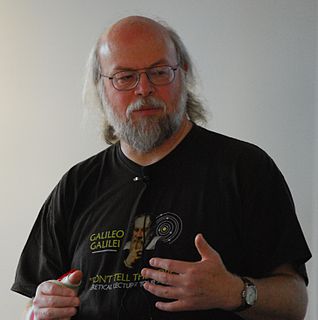A Quote by Larry Ellison
Be careful about virtual relationships with artificially intelligent pieces of software.
Quote Topics
Related Quotes
I'm not of the opinion that all software will be open source software. There is certain software that fits a niche that is only useful to a particular company or person: for example, the software immediately behind a web site's user interface. But the vast majority of software is actually pretty generic.
I was really interested in this ability for others to create virtual memories for us. In "The Cartographers" I explore this through Adam Woods, and the company he works for, which produces virtual memories that people can beam into their consciousness. While the technology is sci-fi, the story is also a metaphor for the way love relationships create memories in our minds.

































